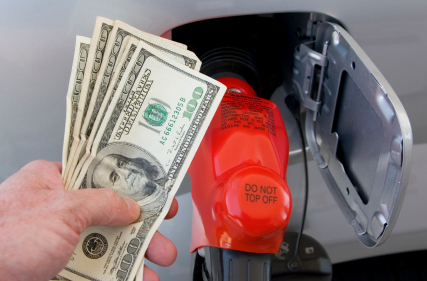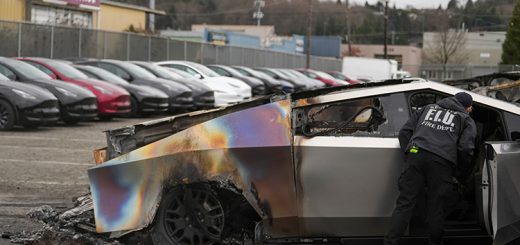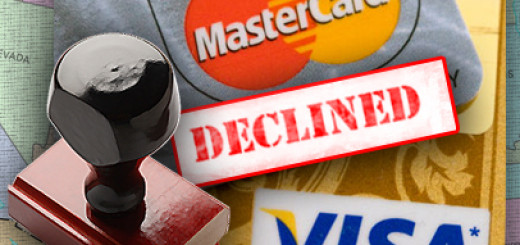Relief for high gas prices lies in high gas prices.

Listen to the broadcast of You Tell Me on Newstalk 600 KTBB, Friday, March 14, 2008.
This radio station has a hard time going more than 15 minutes without running a story or saying something about the price of gasoline. That’s not without justification. The price is high, getting higher and one can’t help but notice. But if you’re old enough, I want you to remember the last time that gasoline prices constantly dominated the headlines. That time would be just about any day you wanted to choose in the 1970s.
Do you remember the long lines at service stations? Do you remember the 10 gallon purchase limits, the odd and even days based on the last digit of your license plate number? Do you remember?
The big news in the 1970s wasn’t that gasoline prices were high. They were. The big news was that gasoline wasn’t available at any price. And we all sat in long lines at gasoline stations instead of working or shopping or being with our families. The entire episode tanked the economy.
Ask just about anyone from that era what happened and they’ll tell you that gasoline lines were the result of the Arab Oil Embargo.
They would be wrong.
Economically speaking, the Arab Oil Embargo was a non-event. They didn’t “embargo” the United States. What OPEC did was vow to reduce oil production by five percent each month until the U.S. withdrew its support for the State of Israel. The fact was then and is now that the market for oil is worldwide. Once the product is loaded on a tanker, the producer has no control on where the tanker goes. The impact of the 1973 OPEC production cuts on world markets was trivial.
Gasoline came to be in short supply because of wage and price controls imposed under the Nixon administration in 1971, the effect of which prevented oil companies from passing on the full cost of imported crude oil to consumers at the pump. In the face of increasing world oil prices, so-called “Big Oil” acted rationally: It cut back on imports and stopped selling oil to independent service stations to keep its own franchisees supplied.
By May of 1973, five months before the embargo, 1,000 service stations had shut down for lack of fuel. By June, companies in many parts of the country began limiting the amount of gasoline motorists could purchase per stop.
This all led to the “Emergency Petroleum Allocation Act of 1973”, which made things worse. The act mandated that supply reductions had to be shared equally between branded and independent retailers. It also mandated a five percent supply set-aside to be allocated at the discretion of state governors, further tightening an already tight supply.
I bring all of this up because there’s a lesson to be learned.
On January 28, 1981, eight days after taking office, Ronald Reagan issued Executive Order number 12287, effectively rescinding the Emergency Petroleum Allocation Act of 1973. The next day, he issued Executive Order number 12288, putting the final nail in the coffin on Nixon’s wage and price controls. Almost immediately, gasoline shortages ended and we’ve had plenty of gasoline since. And yes, today’s price is high. But adjusted for inflation, it’s only just now reaching the levels it did at its peak in the 1970s.
What’s the lesson? Keep the government out of markets. Government intervention in the free flow of goods and capital will make things worse every time.
The best way to get rid of high prices is to have high prices. The market will react by reducing demand, putting downward pressure on the price. That’s happening right now and you’ll see the effect in the weeks and months to come.
I say all of this as a warning in this election year. Listen to the candidates, and yes I mean most particularly Clinton and Obama, and they’re saying that they are going to mount some government initiative to reduce gasoline prices and, oh by the way, solve the “mortgage crisis.”
Be very afraid.
I’ve said it before. Just like with gasoline, if you let the government start interfering with the free-market decisions of lenders, you’ll see credit totally dry up. Then we’re in real trouble.
The U.S. government ran World War II and the Apollo program very well. Give it credit. Now, name something besides those two.
The market will resolve high gasoline prices and the mortgage market mess. Let it do so and don’t listen to the pandering of the candidates.
That’s my word. What’s yours?








I would ask you to do two things pertaining to our Gasoline problem, Exxson/Mobil posted their largest profit in many years with the cost/barrel as it is today. Their Profit has a bit to do with their proven oil reserves. When you type in Prudhoe Bay, and Gull Island that has the potential of 2million barrels of Production/day, estimated to keep America in oil for the next 200years! Ask Atlantic Richfield,Arco. I’m certain they can respond. An angry vetern of the Korean War called Frank,thank you.
As soon as SUV’s became one of the top selling vehicles on the market and Hummers were being advertised at 8 MPG, we should have realized that gas prices were going to go up. Way up. Market drives the price. If we all were really concerned about gas prices, we would all be carpooling in a Toyota Prius. If I manufactured a product that was in high demand, I would sell it for as much as I could get. If demand dropped, the price would drop. This is common sense. The oil companies are out to make as much profit as possible for their stock holders, just like any other business. When we get tired of paying high gas prices, we will either drive more economical vehicles or travel less.
Ok, I am so sick of hearing people say why don’t you buy a toyota prius instead of driving the chevy suburban. Well, I have to drive a chevy suburban because I have a very large family. There is no way I could fit my family in some tiny little car… So remember, there are always two sides to every story. Sure, I would love to get 25 to 30 miles a gallon, but I’m not going to strap my kids to the roof of the car to get it. So, yes, I feel the pain at the pump probably more than most people, but what can I do. We have cut most of our extra driving out, and have combined trips to the store, ect. Just take a moment next time you see a suburban on the road….We’re not all gas hogs just for the fun of it. I also agree that the government needs to butt out, and let this country run itself the way we know how to. I don’t understand why the government wants to dictate what we can and can’t do with every little thing.
And I can promise you one thing, neither Obama, Clinton, or McCain will be able to do anything right. I believe both parties have gone down the wrong road. Politicians are just not listening to the American people anymore.
if the government wants to get involved. They should try pressuring the automotive industry into developing more efficient vehicles. There is no reason why they can’t develop a large SUV that would get at least 20 mpg. In my opion, all vehicles are less efficient than what they should be. If Volkswagon can make a jetta sports wagon that gets in the mid 50s mpg, there is no reason why others can’t improve too.
The interstate system, the GI bill, the National Park Service, the infiltration of the greatest terrorist organization in this nation’s history-the ku klux klan, the Cuban Missile Crisis, the desegregation of our society, the peaceful and legal transfer of political power (except 2000, of course), the vital separation of church and state, the defeat of the Confederate rebellion and the elimination of slavery–the truth is that for every government failure, there are a hundred successes. The difference lies in perception. Many of the social programs conservatives rail against have in fact reduced poverty, prevented literal class warfare, and indeed saved lives. Much of what you dismiss as government failures are in fact resounding successes.
You would think at some point($120-$140 a barrel) that we could use some our own oil. It has to be profitable at that price. That’s because this is not about oil. It’s about Israel
There’s NO REASON for oil to be at the prices that they currently are, with the exception of three things:
1. Gaming the system – oil is produced abiotically…or do you still think that they were made from dinosaur carcasses (fossil fuels)? Hahahaha…do a search for Eugene Island + oil. Thomas Gold was not the originator of this idea…
2. The government (our current administration…and you are in COMPLETE DENIAL IF YOU DOUBT THIS AT ALL) is in bed with the oil companies. If our cars were getting the 100-200 MPG that they should (I have seen the patent for the 200 MPG carburetor [http://www.newmediaexplorer.org/sepp/2003/06/07/original_blueprints_for_200_mpg_carburetor_found_in_england.htm]), the need for alternative energies wouldn’t be such a big deal…but look at the MPG standards…I believe that they HAVEN’T CHANGED SINCE THE SEVENTIES! That’s how many years that our cars have gotten the same, and oftimes LESS, mileage per gallon? Don’t be a tool…
3. The unconditional support of Israel – despite the U.N. sanctions that they have flouted; despite the inhumane conditions to which the denizens of Gaza are subjected; despite the fact that Israel have now admitted more than once to having nuclear weapons…weapons which were obtained through SPYING; we take their side in any and all disagreements, in regards to the U.N. – this has to STOP. They have their own defences; they have a surplus economy; and they seems to have our entire (s)ELECTED GOVERNMENT BY THE BALLS (or lack of)!
It’s time to lime the leech.
Please note that oil prices are not subject to free market economy. The market system is oligopoly (few producers and billions of consumers). Producers are not private companies, they are governments. The high oil price is because of the US foreign policy in the Middle East. We we did not stick our nose on other country’s business, this would not happened.
I completely agree with Frank in that there are fields within the US, particularly Prudoe (sp)Bay in Alaska. The ex-husband worked for Atlantic Richfield and I know for a fact that they could drill up there.
As a worker for the state I have to drive everyday for the sake of children and their protection. I appreciate the writer who will not place her children in danger for the smaller car. I do think that the oil companies can put a great deal of their profits back into the oil economy…i.e. price per barrel… so that the little guy is not slammed when it comes to putting fuel in the vehicle or food on the table for his children.
I know many people say that it is not all about the oil companies, but I havce a real problem when the executives are racking up millions in salary and bonuses. When my ex worked for Atlantic Richfield they were always announcing layoffs because they didn’t make the profit that they expected. Seems to me the same thing is working here with the gas/oil prices.
I wonder how the oil executives would feel if a child died because the parents did not have the gas money to pay for the trip to the hospital or the city ran out of money to fuel the ambulances. What about the woman being beaten by her husband or significant other and no help comes because the city rant out of money to fuel the police squad cars….I could go on and on.
Come on folks. When Microsoft is declared to have a “monopoly” and cornering the market, the US Govt. gets involved. When pharmaceutical companies start their “preditory pricing” the US Govt. gets involved. But for some mysterious reason, whenever the airlines or oil companies start raping the consumer with their monopolistic price gouging, the US Govt. turns a blind eye. Why? Because they’re getting their cut. Either in the form of taxes and/or greased palm backdoor deals. Then when consumers start feeling the crunch and look to Congress to do something, Congress has a little hearing, to show that they “did something”, then it all fades away with no relief to the consumer.
The US petrolium companies have an unrestricted monopoly with no protections for US consumers.
I suggest we follow Kuwait’s example by declaring what we already know to be a monopoly a monopoly, declair imminent domain, federalize all petrolium holdings in the US, thus ownership of native petrolium in the US is given to “the people” and all US Citizens pay $0.19 per US gal.
That is effectively what Kuwait does. As the owners of our own natural resources, we can then charge and profit however much we want for exports. Congress would then have to answer to us. Not some greedy oil company who only has to answer to it’s stockholders. Oil companies that are bending us over at the pumps, while selling us what already belongs to us. Our own US natural resource. It’s already ours folks. What would happen if some private company started controlling the supply of air, manipulated the supply and called it “refining” and offered to sell it to you at the price they name?
Bottom line; it’s already ours, lets take it, We The People” own it, Federalize it and distribute it fairly. Failure to declare Imminent Domain on our own natural resources makes it obvious that our Federal Government is no longer “We The People” and is an enterprise unto it’s own.
Call your Representative, stomp your feet, demand they give us what’s already ours. Our own natural resources which have been stolen by corporations and sold back to us for record profits.
You don’t need an suv to be a soccer mom. We raised a family of three, 2 were involved in sports and music/arts, the 3rd in the arts, and we had a Toyota Corolla when they were small. We graduated to a subaru station wagon, which pulled a pop-up camper all over the country in the summers. Then to a Chevy Astro van, and finally a Chrysler mini van. My point is this: an suv is a status symbol. Period. Unless you’re towing a horse trailer, or live in a Colorado-type environment, you probably don’t need a 4wd Suburban. I live in the flatlands of Indiana, and the roads are absolutely clogged with SUVs. I don’t get it. Maybe I do get it – advertising by the auto makers who don’t give a rip about your well-being. In fact they are constantly trying to re-define what well-being means, but it’s THEIR well-being that they’re promoting. Let’s stop believing the BS and start thinking for ourselves. Since gas has hit $4.00 a gallon, I’ve seen a lot of SUVs on used car lots. I think we should just recycle them.
I don’t buy into the “we need an 8mpg giant SUV because we have kids”
I am a very large guy, and I have a wife and three kids.
My wife, two kids, and myself just drove from Washington State to Yellowstone National Park, in a Kia Rio.
I put an article on my website showing how we were able to get up to 38mpg, even though we had 4 people in the car and the trunk was loaded down with luggage.
None of us were the least bit uncomfortable.
Now I’ll admit, if all five of us were in that car it would have been pretty cramped in the back seat, but anyone with a family of 4 could easily do what we did.
I grew up in a family of 6 (4 kids) and they didn’t make SUV’s back then…. we all managed to get around in a station wagon that in the 70’s got twice the gas mileage of today’s modern SUV’s.
So the “we have a big family and need an SUV” line really doesn’t hold much water.
Whenever I drive anywhere, 90% of the gas guzzling SUV’s I see have one person inside of them. ONE PERSON.
Not only that, drivers of large SUV’s tend to be more aggressive drivers… on average they get more speeding tickets than every other class of car except for high end sports cars.
Speeding and aggressive driving uses even more gasoline.
It’s really pretty simple. You are either part of the problem or part of the solution. In this case, people who use more will be paying more…
SUV drivers never thought twice about peak oil, or environmental damage, or oil wars, or future generations, or alternative fuels…. NO… they never thought (or cared) about anything until they felt a hit in their own pocket books.
Ironically, now it is the owners of SUV’s that complain the loudest about high gas prices.
;)